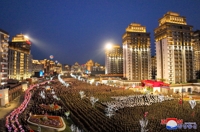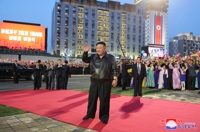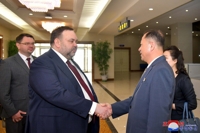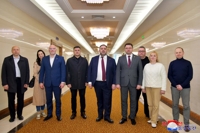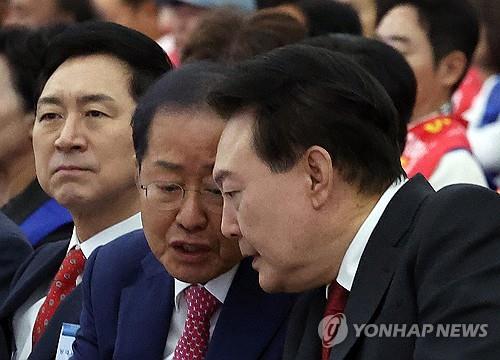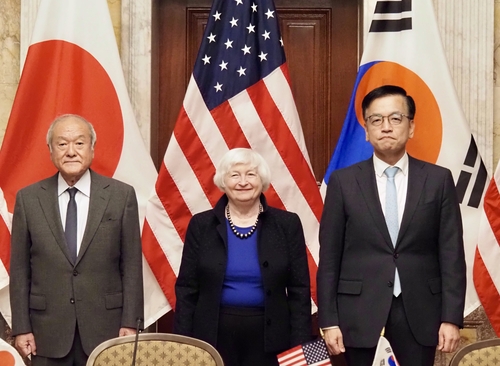(EDITORIAL from Korea JoongAng Daily on July 12)
Ruining an industry
We are shocked at the results of the Board of Audit and Inspection (BAI)'s audit of the procedure for selecting duty-free shops under the Park Geun-hye administration. According to a government watchdog, the Korea Customs Service (KCS) eliminated Lotte Duty Free Shop in the first and second rounds of bidding. If the customs service had taken the proper action, Lotte would have qualified for the license that it was denied. We wonder why the government wanted to give favors to other duty-free shop operators by distorting its assessments.
In some cases, the president's order was enough to change the whole shape of the industry. In the beginning, the Ministry of Strategy and Finance and the KCS planned to give license to three new duty-free shops in 2015 and then determine the need for additional shops every two years later. But as soon as Park ordered additional licenses for duty-free shops at the end of 2015, that all changed. A commissioned study upped the optimum number of additional shops to four from one. A fabricated report gave an overly optimistic forecast of shoppers despite the steep decline in Chinese tourists after the Middle East respiratory syndrome outbreak.
As a result, the number of duty-free shops in Seoul alone has doubled to ten in three years. But all of them have been suffering severe losses due to a drastic decrease in Chinese tourists since the government's decision to deploy the Terminal High Altitude Area Defense (Thaad) system. With Chinese tourists accounting for 70 percent of sales, none of the 22 duty-free shops across the country is expected to be profitable anytime soon.
Hanwha Duty Free Shop last month returned its license to the KCS. Duty-free shops, once dubbed “golden gooses,” are now money pits. The customs office ruined the industry due to fiddling from the Blue House.
The government provides administrative services for the public good. Licensing duty-free shops is no exception. But the BAI's findings show a critical lack of transparency, sustainability and consistency. Government officials blindly followed a corrupt president's instructions.
We wonder why the government needs to control the duty-free industry any more. It is time to introduce a system that allows applicants to run duty-free shops freely. Korea's duty-free market accounts for a whopping 17 percent of the world's total. The time for the government to exploit the system for political purposes has ended. The new government must not forget that market principles count more than ever.
(END)
-
 Defense chief says N. Korea's hypersonic missile 'unsuccessful' in last-stage glide flight
Defense chief says N. Korea's hypersonic missile 'unsuccessful' in last-stage glide flight -
 Relax, immerse yourself in scents at Venice Biennale's Korean Pavilion
Relax, immerse yourself in scents at Venice Biennale's Korean Pavilion -
 Overdue debut of Korean abstract art pioneer Yoo Young-kuk at Venice Biennale
Overdue debut of Korean abstract art pioneer Yoo Young-kuk at Venice Biennale -
 N. Korea has capability to genetically engineer biological military products: U.S. report
N. Korea has capability to genetically engineer biological military products: U.S. report -
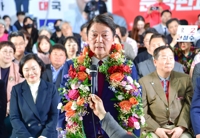 PPP lawmaker says entire Cabinet should resign over general elections defeat
PPP lawmaker says entire Cabinet should resign over general elections defeat
-
 Relax, immerse yourself in scents at Venice Biennale's Korean Pavilion
Relax, immerse yourself in scents at Venice Biennale's Korean Pavilion -
 Overdue debut of Korean abstract art pioneer Yoo Young-kuk at Venice Biennale
Overdue debut of Korean abstract art pioneer Yoo Young-kuk at Venice Biennale -
 Defense chief says N. Korea's hypersonic missile 'unsuccessful' in last-stage glide flight
Defense chief says N. Korea's hypersonic missile 'unsuccessful' in last-stage glide flight -
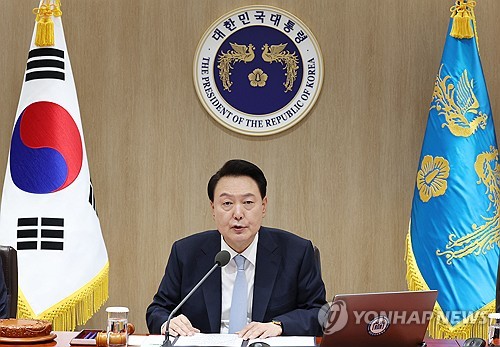 (LEAD) Yoon vows to improve communication with people after election defeat
(LEAD) Yoon vows to improve communication with people after election defeat -
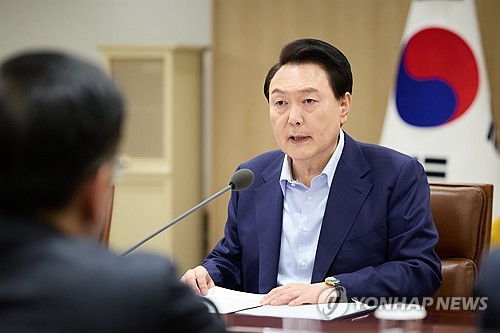 Yoon presides over emergency meeting on Mideast crisis
Yoon presides over emergency meeting on Mideast crisis
-
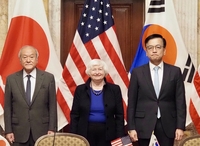 (4th LD) Finance chiefs of S. Korea, U.S., Japan recognize 'serious' concerns over 'sharp' won, yen depreciation
(4th LD) Finance chiefs of S. Korea, U.S., Japan recognize 'serious' concerns over 'sharp' won, yen depreciation -
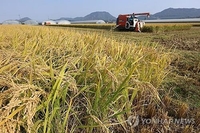 S. Korea to provide 100,000 tons of rice to 11 nations
S. Korea to provide 100,000 tons of rice to 11 nations -
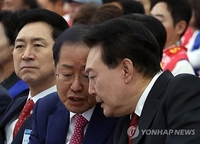 Yoon, Daegu mayor met to discuss post-election matters: sources
Yoon, Daegu mayor met to discuss post-election matters: sources -
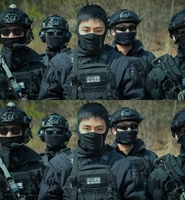 Facebook page unveils photos of BTS member V in counter-terrorism unit gear
Facebook page unveils photos of BTS member V in counter-terrorism unit gear -
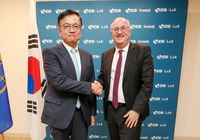 S. Korea to provide US$200 million in humanitarian aid to Ukraine this year
S. Korea to provide US$200 million in humanitarian aid to Ukraine this year















